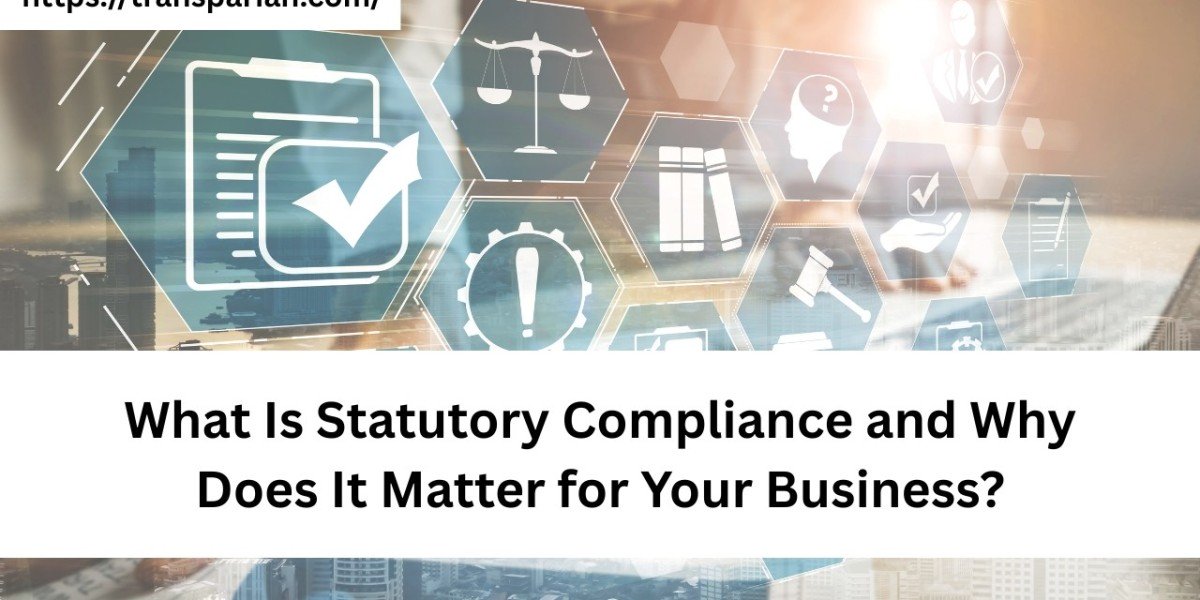What Is Statutory Compliance and Why Does It Matter for Your Business?
All modern businesses operate in an environment requiring strict adherence to legal regulations and frameworks. The key to running successful business operations lawfully depends on proper statutory compliance. Businesses need to obey rules that specifically apply to their operations through regulations and laws and provisions concerning employee welfare and taxation requirements. Every business from start-ups to large corporations requires complete understanding of proper statutory compliance to dodge legal consequences while sustaining their good reputation.
Understanding Statutory Compliance
Organizations must fulfill all laws that both central and state authorities enforce through statutory compliance. Laws about employee paychecks and benefits together with workplace security along with working environment standards make up the majority of legal requirements. The key areas within statutory compliance consist of the Payment of Wages Act and Minimum Wages Act as well as Employees’ Provident Fund (PF), Employees’ State Insurance (ESI), Payment of Bonus Act together with multiple tax-related laws.
Businesses that fail to follow statutory requirements face potential penalties alongside possible court actions even though this noncompliance can stop operations and reduce brand reputation. Companies succeed through the partnership of PF & ESIC Consultants or trusted PAN India compliance agencies to effectively handle their obligatory tasks.
Key Components of Statutory Compliance
1. Provident Fund (PF) and Employee State Insurance (ESIC)
All employers conduct statutory payments to Provident Fund and Employee State Insurance by contributing fixed wage percentages of their employees. A PF & ESIC Consultant together with a trusted PAN India compliance agency helps businesses in the deduction process and assures accurate submissions as well as managing government department inspections and audits.
2. Payroll and Taxation Compliance
Persons conducting business need to correctly compute their tax obligations especially TDS, professional tax and income tax. The correctness of payroll processes at proper time leads organizations to maintain compliance standards as well as creates employee confidence.
3. Labor Law Adherence
Maintaining registers, filing returns, and ensuring adherence to labor laws are all part of compliance services. The set of regulations comprises working hour standards combined with leave systems and health safety measures together with formal processes for employee grievances.
4. Licenses and Registrations
Every business operation requires active statutory licenses encompassing Shops and Establishments Act registration together with factory licenses and labor welfare fund registration. A reliable PAN India compliance agency can help streamline these processes across multiple locations.
Why Statutory Compliance Matters
Legal Safeguard
Staying compliant with the regulations guarantees your business runs inside legal boundaries which protects you from legal consequences and operational halts.
Employee Satisfaction
Employee satisfaction along with retention increases because work environment security exists through wage law compliance alongside PF and ESI contribution regulation.
Operational Efficiency
Businesses can concentrate on strategic growth through outsourcing compliance work to either professional services or PF & ESIC Consultants who minimize administrative requirements.
National Reach and Uniformity
A PAN India compliance agency operates to maintain uniform regulatory and practice standards across every business unit or branch throughout the nation.
Taking a proactive approach to statutory compliance exceeds legal requirements because it creates responsible transparent business environments ready for growth. Organizations operating in India need to prioritize compliance because state-specific regulations and frequent changes in rules make non-compliance mandatory for long-term business growth.








